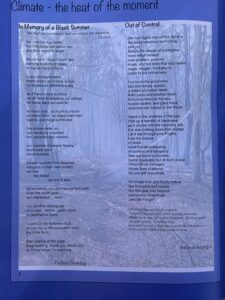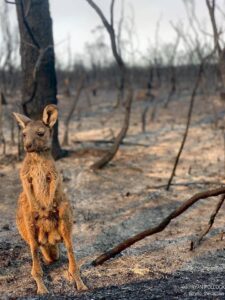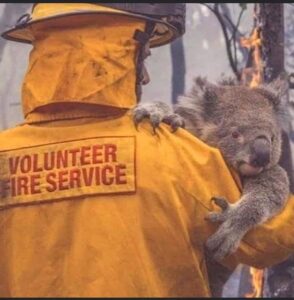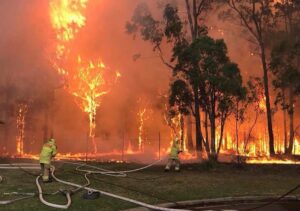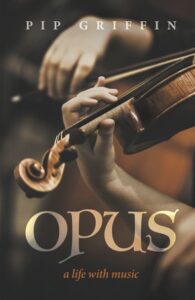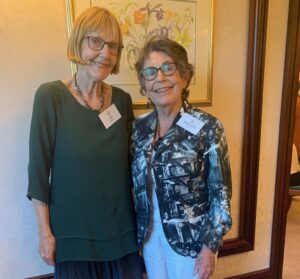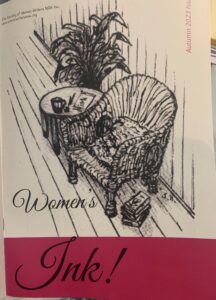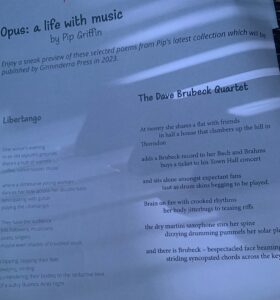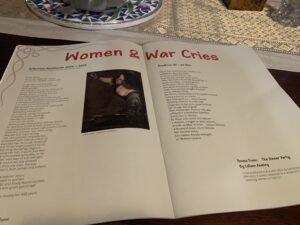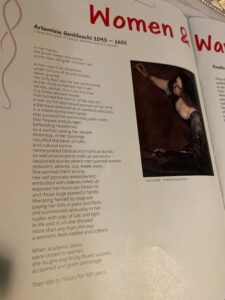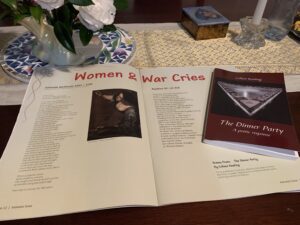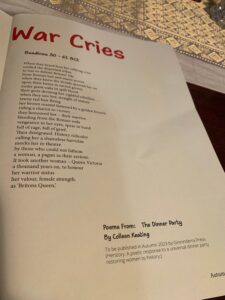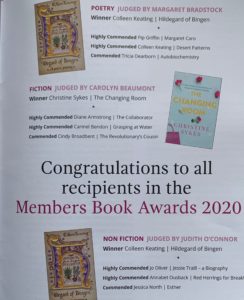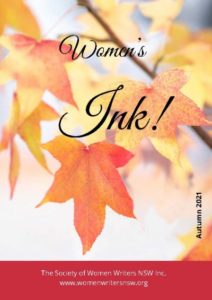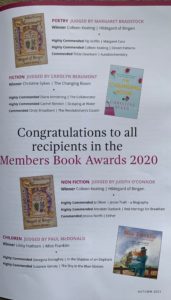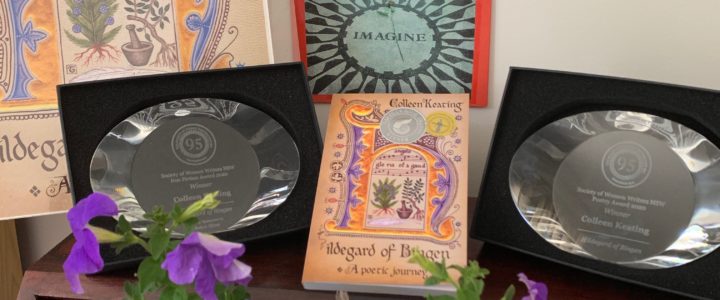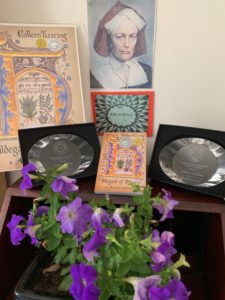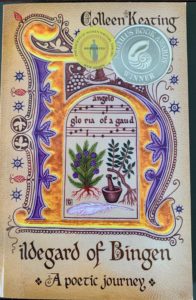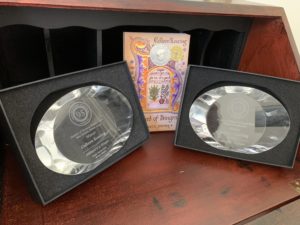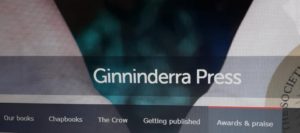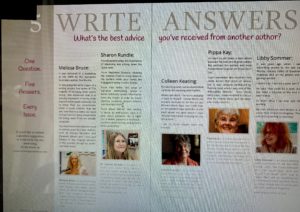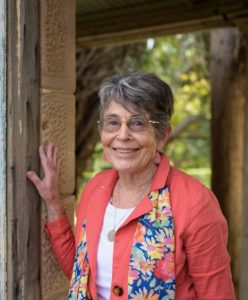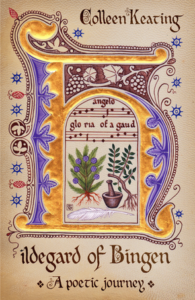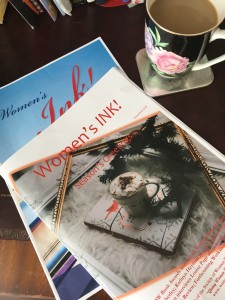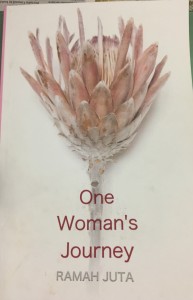Compulsive Reader

http://www.compulsivereader.com/
A review of Olive Muriel Pink by Colleen Keating
Reviewed by Beatriz Copello
I do not think there is a better way to honour a woman of the calibre of Olive Muriel Pink than to write a book of poetry about her life. Colleen Keating has done just that, she has written a poetic journey about this unsung Australian heroine.
With a sharp eye and lyric touch, the world of Olive Pink becomes alive, it is a passionate story told with knowledge. It is evident that the poet has invested years researching the life of Olive Pink. The poet says: “I have been researching, writing and thinking about Olive Pink for over a decade now. The discoveries that come along the way – the portraits unveiled – are very stirring.”
This collection covers many years in the life of Pink, it starts in 1884 and finishes in 1975. The book also has a foreword, a prologue and a chronology as well as notes and bibliography. The labour of love that went into writing this book would grant the author a doctorate.
The author in Notes explains that she aimed to write a book that fell between an accurate scholarly presentation of Olive Pink’s life and her own personal interpretation of it.
Olive Pink was a fighter for justice who advocated for the rights of First Nations People, she was also an anthropologist, artist and gardener. Keating from the first poem in the book alerts the readers about what they will encounter throughout the pages, in this excerpt from “Olive the pioneer” she writes:
Who is Olive?
She defied the silence
caused discomfort
annoyed the authorities.
Her letters shouted from the edge.
She heard budgerigar dreaming
and drummed to a different tune.
She pushed against the colonial tide.
If the answer is ‘eccentric’
in her death she will be twice dismissed.
Who is Olive? History asks.
She broke the silence
her voice for the voiceless
remembered the forgetting.
She visioned justice in the courts.
Her feet knew country.
She carried red dust
under the fingernails of her heart.
She listened to elders, learnt language
wrote down stories, sketched arid plants
medicinal, nutritional, ritual.
If the answer is ‘anthropologist’
in her death she will be twice honoured.
If Keating wrote music, I would say she does not miss a beat, when she raises issues about Olive’s past, she does it with conviction and poignant comments, like in the following excerpt from “A new lodestone”:
The grim spectre of injustice
towards Aboriginal tribes
taunts Olive out of her grief
jolts her from self pity.
Like a silk petticoat pulled over her hair
the air is static in its darkness.
It bleeds through a colander of whitewash words
Its handprint blood-red.
The poet also utilizes very vivid imagery, the readers become Olive, we can see, smell, hear what she experiences. Keating appeals to the senses, the following poem “Restless” illustrates this:
In her dingy office Olive yearns
for the vast open country, large skies,
hazy horizons, a slung kettle hissing
and spitting its leak over the fire.
Burnt flesh and sizzle
of goanna still fill her nostrils.
Olive walks country in her sleep –
the pungent smell of camels
sweaty bodies, blazoned glare, flies
dust-blown storms.
That red dust under
the colour of her heart
and patter of Pitjantjatjara children
still running giggling beside her
lingers like the balm of an Indian summer.
The poet has the skill to write about Olive’s powerful emotions without sentimentality or corniness, through these strong emotions readers can form a picture in their mind of Olive’s personality. The following excerpt from the poem titled “Heady days” is a good example of the Keating’s ability:
Olive is energised by academia.
The scissor-cut horizon
of her desert experience
challenges like a mirage.
She seizes every chance to argue,
‘The root cause is not malnutrition or disease –
They camouflage facts, treat the wrong symptoms.’
Heated discussion rises.
Angrily she fights for breath.
‘Even the most ignorant know the problems –
White man’s aggression, sexual abuse
fear, venereal disease, land dispossession.
We like to deride these facts.’
She flushes, her neck prickles as she continuous,
‘Full-bloods need their own protected country
not mission reserves.’
Her tone is strident.
‘Daily handouts from stations
Keep them tied to white man power.’
Olive Pink struggled all her life to be able to do what men were able to do, in the following poem “High Hopes” Keating captures this desire but also very cleverly imagines her mood in such a difficult situation.
Over dinner her enthusiasm bubbles.
‘After my thesis I plan
a full year of research among the Arrernte’
she confidently tells the Professor
and others grouped around the table.
‘I would like to be included
in your next museum expedition.
It will reduce my research expenses
and my anthropology will enhance the group.’
Silence.
Unease around the room
as lightening awaits a clap of thunder.
Awkward shifts and exchanged glances
the embarrassed clearing of throats.
From her left in a deep tone,
‘That would not be possible …
‘But you took Ted Strehlow on your trip last year!’
‘… for a woman,’ mumbles the professor.
Exposed, Olive’s heart races.
She hopes they don’t notice the burn
of her cheeks.
She avoids eye contact
gazes out as one with miles to go
restless to be on her way.
She needs desert air.
‘Why does gender cause such heart break?’
she broods into the night.
‘Why wasn’t I born a man.”
I would like to congratulate Colleen Keating not only for writing this incredible book but also for honouring a woman from the past which like many other Australian heroines are often forgotten or not given credit for their achievements.
Reading about Olive Muriel Pink will inspire you and give you strength to struggle to achieve your aims.
About the Reviewer: Dr Beatriz Copello is a former member of NSW Writers Centre Management Committee, she writes poetry, reviews, fiction and plays. The author’s poetry books are: Women Souls and Shadows, Meditations At the Edge of a Dream, Flowering Roots, Under the Gums Long Shade, and Lo Irrevocable del Halcon (In Spanish). Beatriz’s poetry has been published in literary journals such as Southerly and Australian Women’s Book Review and in many feminist publications. She has read her poetry at events organised by the Sydney Writers Festival, the NSW Writers Centre, the Multicultural Arts Alliance, Refugee Week Committee, Humboldt University (USA), Ubud (Bali) Writers Festival.
And here is the abridged version for Women’s Ink Spring/Summer 2022
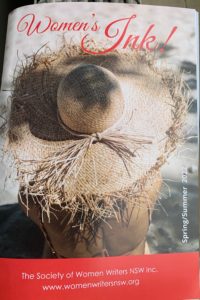
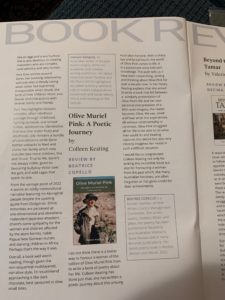
Excited today to receive in the mail, the latest SWW journal Women’s Ink with a very affirming review of my book
Olive Muriel Pink: A Poetic journey.
Lots of thanks due: Beatriz Copello la for her dedicated reviewing ; Jacqui Brown for a very profesional journal, Maria McDougall, President of SWW and of course Stephen Matthews and Ginninderra Press..
This is an abridged review. The full length of Beatriz Copello’s review can be read on my blog
Olive Muriel Pink
Her radical and idealistic life
A poetic journey
Colleen Keating
Publ. Ginninderra Press
Review by Beatriz Copello
I do not think there is a better way to honour a woman of the calibre of Olive Muriel Pink than to write a book of poetry about her life. Colleen Keating has done just that, she has written a poetic journey about this unsung Australian heroine.
With a sharp eye and lyric touch, the world of Olive Pink comes alive. It is a passionate story told with knowledge. It is evident that the poet has invested years researching the life of Olive Pink. The poet says: “I have been researching, writing and thinking about Olive Pink for over a decade now.
The labour of love that went into writing this book would grant the author a doctorate.
The author in Notes explains that she aimed to write a book that fell between an accurate scholarly presentation of Olive Pink’s life and her own personal interpretation of it.
With vivid imagery, the readers become Olive, we can see, smell, hear what she experiences. with the skill to write about Olive’s powerful emotions without sentimentality or corniness,
Olive Pink struggled all her life to be able to do what men were able to do and Keating captures this desire but also very cleverly imagines her mood in such a difficult situation.
I would like to congratulate Colleen Keating not only for writing this incredible book but also for honouring a woman from the past which like many other Australian heroines are often forgotten or not given credit for their achievements.
Dr Beatriz Copello is a former member of NSW Writers Centre Management Committee. Beatriz writes poetry, reviews, fiction and plays. Beatriz’s poetry has been published in literary journals such as Southerly and Australian Women’s Book Review and in many feminist publications.
Her latest poetry book is Witches, Women and Words. 2022.
